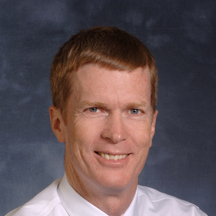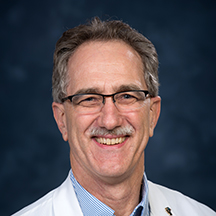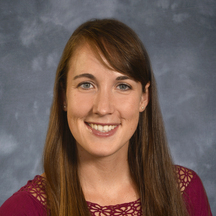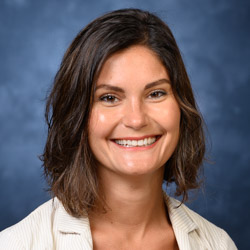Residency: Small Animal Surgery
The Small Animal Surgery Residency Program at NC State offers a diverse training experience, with the goal of producing a competent surgeon who can provide high-quality professional services in a private or academic setting, develop creative approaches to clinical problems, and apply scientific technique to advance knowledge in surgery. It is structured so that, with diligence, residents will meet all the requirements of the ACVS.
Program
This collaborative four-year small animal surgery program is designed to train the resident considering a career in academia. It ensures that the requirements for credentialing for the ACVS are met and that you are well prepared for phase I and II examinations. Over the four years of the program, you will be required by ACVS to have 156 weeks of clinical duty. With five residents in the program, you will spend time on the NCSU Orthopedics and Soft Tissue and Oncologic Surgery Services (>126 weeks) and Neurology Service (18 weeks), and at the Veterinary Specialty Hospital of the Carolinas (VSH-30 weeks). Over four years, you will log over 700 surgical cases.
Primary supervision by one of the nine ACVS board-certified faculty is provided on over 80% of your cases, with increasing autonomy granted with demonstration of appropriate technical skills and peri-operative management. Further training comes from weekly attendance of rounds in orthopedics and soft tissue surgery, journal review sessions and House Officer rounds. Responsibility for decision-making and procedures increases as you progress through the program. When not assigned surgical clinic duty, you will complete Internal Medicine, Anesthesia, Pathology and Radiology special rotations, complete externships, assist in teaching laboratories, and complete, as the primary investigator, a publication based on original research. During the first year, approximately half of your time will be spent on clinics and the other half assisting with teaching laboratories (anatomy, surgery, orthopedics) and getting your first research project underway. Training in research methodology and direct mentoring from all faculty will be provided to enhance your research skills and exposure. Dovetailing your residency project into a post-residency Ph.D. can be considered for interested applicants. During the second year you will be given time to study for the ACVS Phase I examination. The third year will be spent on clinics. During the 4th year you will be given 12 weeks, off clinic time, to study for the ACVS Phase II examination. Following completion of the Phase II exam, residents will spend time as a senior resident taking on more responsibility in the day-to-day operations of the soft tissue and orthopaedic services. All residents are evaluated twice a year by the faculty. At the completion of the program, residents should be able to provide high quality professional services in an academic setting, develop creative approaches to clinical problems, and apply scientific technique to advance knowledge in surgery.
A North Carolina veterinary faculty license is required and is easily obtained after arrival. Passing a test on the North Carolina Veterinary Practice Act is required as part of obtaining a faculty certificate or license. Professional liability insurance is supplied with our program. Residents are not allowed to practice veterinary medicine outside of the University within the state of North Carolina.
In the last 22 years, 23 residents selected through the match have completed the program and 22 have passed the ACVS Board examinations.
Program Leadership
Orthopedic Surgery
Soft Tissue and Oncologic Surgery
Apply
The NCSU Small Animal Surgery Residency program frequently receives a large number of applications from candidates with a wide range of experiences. To assist candidates in preparing their application, they should consider their strengths in the various areas outlined below. Aspects of an application that are considered in the selection process include (but are not limited to):
- DVM GPA / Class Rank
- Awards and Honors (particularly those related to Surgery)
- Completion of a rotating medicine/surgery internship or similar post-graduate experience
- Ability of the letter of intent to convey the candidates interest in the position and future goals
- References from Diplomates of ACVS and other specialty Colleges that attest to your personality and abilities
- Additional surgical training and experience within their veterinary curriculum
- CE courses attended
- Surgical internship experience
- An understanding of the research process (not necessarily related to surgery)
- Graduate degree
- Previous publications (especially first author papers in peer-reviewed journals)
- Funded research grants
Strong preference will be given to candidates with a good academic record, proven research experience, and highly supportive letters of reference from ACVS diplomates. These letters must detail the surgical and research experience of the applicant, their ability to work within a team, and their industriousness. A desire to pursue an academic career must be well articulated in the letter of intent. International applicants will be considered, but they will need to demonstrate extensive clinical and research experience to be competitive. After review of the applications, interviews will be offered to the top candidates in late December or early January. Those applicants interested in visiting NCSU prior to this period should send a copy of your letter of intent and CV, and the email addresses of three references, via email to Dr. Kyle Mathews. After review by the NCSU faculty, the applicant will be advised of their competitiveness and, if appropriate, a visit date organized. Not all faculty will be available for all visits.
Any questions pertaining to the residency program should be directed to:
Dr. Kyle Mathews
Professor, Orthopaedic Surgery
Phone: (919) 513-6334
E-mail: kmathews@ncsu.edu
Information for International Applicants
Preference is given to applicants who have graduated from a college that is accredited by the American Veterinary Medical Association. If you wish to apply for an internship or residency program things to keep in mind:
- Have your degree translated and evaluated by a reputable company. Options include: Josef Silny & Associates, Trustforte Corporation, and World Education Services
- Some programs require the TOFEL exam to qualify for a internship or residency position.
- Most foreign interns and residents are appointed to H-1B visas.
- To ensure that a foreign national candidate has the H-1B visa at the start of their program the candidate will be asked to pay for the premium processing filing fee of $1,225 USD, if necessary.
- Getting a visa takes between 4 and 6 months if the visa is expedited it takes approximately 15 business days.
- Take the initial steps and apply for The Educational Commission for Foreign Veterinary Graduates (ECFVG) certification program is accepted by all state veterinary regulatory boards and the federal government as meeting, either in part or full, the educational prerequisite for licensure or certain types of employment, respectively.



